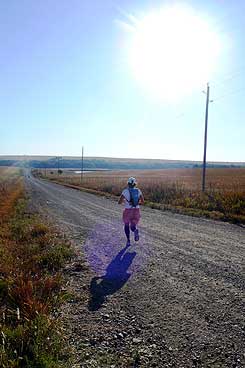

This may be due to the historical influences of traditional gender roles however this effect may be diminishing as female participation in Scottish ultra-races appears to be increasing. Qualitative responses suggested negotiation-efficacy was important for factoring in training around work and family commitments, and although a greater proportion of males had dependants compared to females, female participation was considerably lower than males.

Enablers were: wanting a challenge, nature/outdoors, and the friendliness of the ultra-community. Similar experiences among male and female ultra-runners were identified. Facebook Twitter Instagram Download on the Apple App Store Get it on Google Play.

One-to-one-semi-structured phone interviews were conducted with a subset of runners to further explore themes from questionnaire responses. In this study, online questionnaire responses were collected from ultra-runners taking part in the Scottish Jedburgh 3 Peaks ultra and Highland Fling race. Female participation rates in ultra-running is considerably lower than that of males, but the reasons for this are not fully understood.


 0 kommentar(er)
0 kommentar(er)
